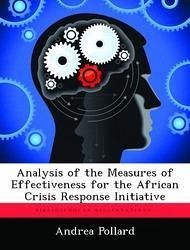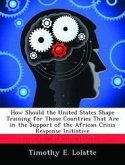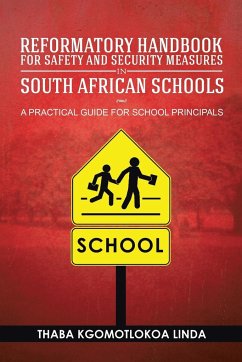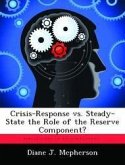Since the early 1960s, post-colonial sub-Saharan Africa has experienced significant crisis and conflict brought on by environmental disasters and internal ethnic violence. African leaders and the international community have sought resolution to these dilemmas through peacekeeping operations and humanitarian relief efforts. The looming crisis in Burundi in 1996 led the United States to launch the African Crisis Response Initiative (ACRI), a program designed to work in partnership with African countries to enhance their capability to respond to crises. This thesis seeks to determine if the current measures of effectiveness (MOEs) for ACRI satisfy strategic goals for the program. The thesis begins by providing a broad overview of post-colonial African crises leading to the evolution of ACRI. This is followed by a qualitative analysis of available military and government documents and select current literature to determine MOEs based on strategic goals, analyze currently established MOEs, and conduct a comparison between the two based on the satisfaction of the identified strategic goals. The thesis concludes by providing MOE recommendations for possible future iterations of ACRI.
Hinweis: Dieser Artikel kann nur an eine deutsche Lieferadresse ausgeliefert werden.
Hinweis: Dieser Artikel kann nur an eine deutsche Lieferadresse ausgeliefert werden.








